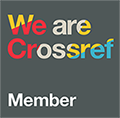The Views of Parents whose Children Receive Chess Education in the Preschool Period Regarding Chess Education
DOI:
https://doi.org/10.33308/26674874.2022361341Keywords:
Preschool, Chess, ParentAbstract
The study used a qualitative research method to reveal the views of preschool children about their chess education. This study was conducted as a case study, one of the qualitative research designs. The study group consisted of 118 parents whose children were receiving preschool education. The study utilized the criterion sampling technique, a purposeful sampling method, to determine the study group. Open-ended survey questions were used to collect the data of the research. The interviews with the participants were planned to be face-to-face, but due to the pandemic, the data were collected by sending the forms created online by three researchers to each participant. Data obtained from the interviews with the participants was analyzed using the content analysis method. Results revealed that the parents whose children received chess education in preschool held that their academic skills increased with the education’s contribution to alternative thinking, attention/focus time, planning/strategy, mathematical thinking, and establishing cause–effect relationships.
Downloads
References
Aciego, R., Garcia, L., & Betancort, M. (2012). The benefits of chess for the intellectual and social-emotional enrichment in school children. The Spanish Journal of Psychology, 15(2), 551-559.
Agarwal, N. (2011). The advantages of playing chess. Deccan Herald. https://www.deccanherald.com/content/165644/advantages-playing-chess.html
Aile, Çalışma ve Sosyal Politikalar Bakanlığı. (2020). Pandemi sürecinde çocuklarımız “satranç eğitimi” alarak turnuvalara hazırlanıyor. Aile ve Çalışma. https://ailevecalisma.gov.tr/yalova/haberler/pandemi-surecinde-cocuklarimiz-satranc-egitimi-alarak-turnuvalara-hazirlaniyor/
Akay, K. (2017). Okul öncesi dönem çocuklarına verilen satranç eğitiminin bilişsel ve sosyal davranışa etkisinin incelenmesi (Yayımlanmamış Yüksek Lisans Tezi). Necmettin Erbakan Üniversitesi
Barford, V. (2011). Should every child be made to play chess? BBC News. https://www.bbc.com/news/magazine-13140772
Bilgin, N. (2006). Sosyal bilimlerde içerik analizi. Siyasal.
Bon, L. (2018). 10 reasons why croco chess should solve the age-old chess problem? Medium. https://medium.com/@laurensbon8/10-reasons-why-crocochess-should-solve-the-age-old-chess-problem-31b1a05559bb
Creswell, J. W. (2017). Nitel araştırmacılar için 30 temel beceri (H. Özcan, Çev.). Anı.
Çapan, O. (2016). Oyunlarla satranç. ODTÜ.
Çelebi, B. (2013). Herkes için satrançla yaşam. Mavi Basım.
Çubukçu, A., & Kahraman, P. B. (2017). Okulöncesi dönem çocuklarının problem çözme becerilerinin satranç eğitimi alma durumlarına göre incelenmesi. Pamukkale Üniversitesi Eğitim Fakültesi Dergisi, 43(43), 51-61.
Dauvergne, P. (2000). The case for chess as a tool to develop our children’s
ElDaou, B. M. N., & El-Smaieh S. I. (2015). The effect of playing chess on the concentration of ADHD students in the 2nd cycle. Procedia-Social and Behavioral Sciences, 192, 638-643.
Erhan, E., Hazar, M., & Tekin, M. (2009). Satranç oynayan ve oynamayan ilköğretim öğrencilerinin problem çözme becerilerinin incelenmesi. Beden Eğitimi ve Spor Bilimleri Dergisi, 11(2), 1-8.
Ferreira, D., & Palhares, P. (2008) Chess and problem solving involving patterns. The Mathematics Enthusiast, 5(2), 249-256.
Gardiner, C. G. (2018). Leaarning chess and the development of cognitive thinking in Queesland primary schools: an exploratory study. (Unpublished Master’s Thesis), University of Southern Queensland.
Gliga, F., & Flesner, I. P. (2014). Cognitive benefits of chess training in novice children. Procedia-Social and Behavioral Sciences, 116, 962-967.
Gobet, F., & Campitelli, G. (2002). Intelligence and chess. In J. Retschitzki, & R. Haddad-Zubel (Eds.), Step by step. Proceedings of the 4th colloquium board games in academia (ss. 103-112). Fribourg (Switzerland): Editions Universitaires.
Gumede, K., & Rosholm, M. (2015). Your move: The effect of chess on mathematics test scores. Discussion Paper Series, 9370, 1-24.
International Chess Federation (2018). Chess a toolfor education. International Chess Federation. https://cis.fide.com/images/stories/OGF3/ogf3en2-180322.pdf
Islam, A., Lee, W. S., & Nicholas, A. (2021). The effects of chess instruction on academic and non-cognitive outcomes: Field experimental evidence from a developing country. Journal of Development Economics, 150, 1-18.
Ivashchenko, S. (2007). The manual of chess combinations volume 1a. Russian Chess House.
Jerrim, J., Macmillan, L., Micklewright, J., Sawtell, M., & Wiggins, M. (2018). Does teaching children how to play cognitively demanding games improve their educational attainment? Evidence from a randomized controlled trial of chess in struction in England. Journal of Human Resources, 53(4), 993-1021.
Jianguo, P., Wenying, J., Zhigang, H., & Zhou, N. (2019). The influence of chess training on pupils’ self-efficacy, self-esteem and social anxiety. SHS Web of Conferences 60, 1-4.
Joseph, E., Manoharan, S., Easvaradoss, V., & Chandran, D. (2016). A study on the impact of chess training on creativity of Indian school children. Journal of Social Sciences, 4, 20-24.
Joy-Stanborough, R. (2020, October 19). The 10 best benefits of playing chess. https://www.healthline.com/health/benefits-of-playing-chess
Karakaya, İ. (2012). Üst düzey düşünme becerilerinin kazandırılmasında satranç bir araç olarak kullanılabilir mi? Bilim ve Aklın Aydınlığında Eğitim, 146(2), 73-76.
Karasar, N. (2012). Bilimsel araştırma yöntemi. Nobel.
Kids Academy (2018, July 30). 7 Life lessons chess can teach your child. Kids Academy. https://www.kidsacademy.mobi/storytime/life-lessons-from-chess/
Kulaç, O. (2007). 1. ve 2. Kademe antrenör interaktif satranç kitabı. Printer Ofset.
Levin, H. D. (1994). Chess puzzles for children. Syllogism Press.
Levy, W. (1986). Utilizing chess to promote self-esteem in perceptually impaired students. US Chess Trust. http://www.uschesstrust.org/utilizing-chess-to-promote-self-esteem-in-perceptually-impaired-students/
Lillo-Crespo, M., Forner-Ruiz, M., Riquelme-Galindo, J., Ruiz-Fernández, D., & García-Sanjuan, S. (2019). Chess practice as a protective factor in dementia. International Journal of Environmental Researchand Public Health, 16(12), 2116.
Maxwell, J. (1992). Nitel araştırmada anlama ve geçerlilik. Harvard Eğitim İncelemesi, 62(3), 279-301.
Merriam, S. B. (2013). Nitel araştırma desen ve uygulama için bir rehber. S. Turan (Ed.), Nitel verilerin analizi (E. Karadağ, Çev.) içinde (ss. 39-54). Nobel.
Meyers, J. (2000) “Why Offer Chess in Schools?” in McDonald, P. S. (2000). The benefits of chess in education. http://www.chessedu.org/wp-content/uploads/BenefitsOfChessInEd-1.pdf
Patton, M. Q. (2014). Nitel araştırma ve değerlendirme yöntemleri (M. Bütün & S. B. Demir, Çev)(1. Baskı). Pegem Akademi.
Poston, D. I., &Vandenkiebomm, K. K. (2019). The effect of chess on standardized test score gains. Sage Open, 9(3), 1-22. https://doi.org/10.1177/2158244019870787
Sala, G., & Gobet, F. (2016). Do the benefits of chess instruction transfer to academic and cognitive skills? A meta-analysis. Educational Research Review, 18, 46-57.
Sala, G., Gorini, A., & Pravettoni, G. (2015). Mathematical problem-solving abilities and chess: an experimental study on young pupils. Sage Open, 5(3), 1-9.
Sherman, L., & Kilpatrick, B. (2012). Chess is child’s play teaching techniques that work. Mongoose Press.
Tanajyan, K., Melkonyan, N., & Movsisyan, S. (2021). Chess as a social value. Main Issues of Pedagocy and Psychology, 19(1), 32-37. https://doi.org/10.24234/miopap.v19i1.390
Tatlıpınar, S. (2017). Satranç öğretiminin okul öncesi çocuklarda dikkat gelişimine etkisi. (Yayımlanmamış Yüksek Lisans Tezi). Selçuk Üniversitesi Sosyal Bilimler Enstitüsü.
Torabi, A. (2016). A Pilot Evaluation of a Multi dimensional Treatment Model (MTM) of 8 to 12 year old students with mild attention deficitand hyperactivity disorder. Int J Appl Psychol, 6(4), 121-9.
Trinchero, R., & Sala, G. (2016). Chess training and mathematical problem solving: the role of teaching heuristics in transfer of learning. Eurasia Journal of Mathematics, Science Technology Education, 12(3), 655-668.
Türkiye Satranç Federasyonu (2021, Ocak 21). Satranç, ortaokullarda seçmeli ders olarak verilecek. TSF. https://www.tsf.org.tr/guncel-haberler/15174-satranc-ortaokullarda-secmeli-ders-olarak-verilecek
Untertainer, J. M., Kaller, C. P., Halsband, U., & Rahm, B. (2006). Planning abilities and chess: a comparison of chess and non-chess players on the tower of London tasks. British Journal of Psychology, 97, 299-311.
Velea, T., & Cojocaru, V. (2018). The effect of playing chess on focused attention. The European Proceedings of Social & Behavioural Sciences, 685-690.
Welnhouse, B. (2005). The brainy benefits of chess. Parents. https://www.parents.com/kids/development/intellectual/benefits-of-chess/#:~:text=While%20some%20children%20will%20be,the%20ideal%20time%20to%20start
Yıldırım, A., & Şimşek, H. (2016). Sosyal bilimlerde nitel araştırma yöntemleri. Seçkin.
Downloads
Published
How to Cite
Issue
Section
License
Copyright (c) 2022 Journal of Education for Life

This work is licensed under a Creative Commons Attribution-NonCommercial-NoDerivatives 4.0 International License.
I accept that the Owner of Journal of Education for Life, the Editor, Associate Editors, Reviewers and the Editorial Board cannot be hold responsible regarding the scope, the findings, the discussion and conclusion of the manuscript submitted.
I declare to the editorship of Journal of Education for Life that the manuscript is original and has not been published anywhere else or is not under evaluation process for any other journal.
I approve that I grant Journal of Education for Life as the sole and exclusive right and license to publish for the full legal term of copyright of my manuscript concurring with article 5846 / 22-23-25 while I retain copyright in the work.





